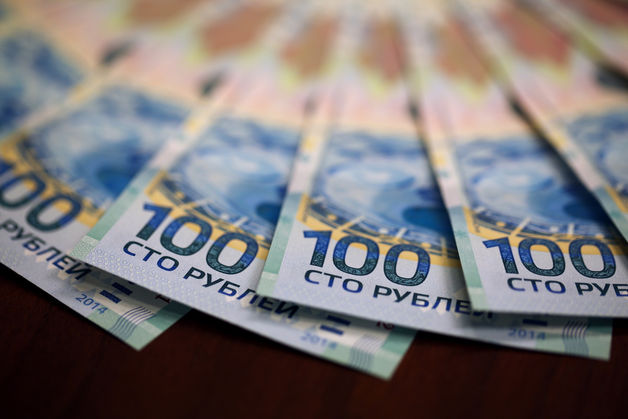Bank of Russia’s Yudaeva says ruble’s oil-led rally is over

By Bloomberg
The Bank of Russia said the ruble’s oil- driven appreciation, this year’s biggest currency rally, has ended.
“The fast appreciation of the ruble that we saw, linked to the sharp upswing in the price of oil by 30 percent -- that’s over,” central bank First Deputy Governor Ksenia Yudaeva said at a conference in Moscow on Wednesday. “Now we are seeing a stabilization.”
Policy makers, who shifted to a free-floating exchange rate in November, have moved to blunt the ruble’s gains by raising the rate they charge banks for foreign currency at repurchase- agreement auctions three times in less than a month. While a stronger currency is helping tame the fastest inflation since 2002, the appreciation is also cutting into budget revenue by reducing export proceeds, with the government already predicting the widest fiscal shortfall in five years.
A rebound in oil, Russia’s chief export earner, has stalled in March after driving the ruble’s comeback following the currency’s biggest crisis since 1998. The ruble is the world’s most volatile major currency after leading declines against the dollar last year.
European crude benchmark Brent, which is priced close to Russia’s Urals main export blend, has gained 7.5 percent this year, compared with the ruble’s 14 percent advance. The ruble went into a 46 percent tailspin last year after an almost 50 percent crash in oil prices compounded the impact of U.S. and European sanctions imposed over the conflict in Ukraine.
Biggest Slump
The Russian currency has weakened 7.6 percent in the past four days against the dollar, its biggest slump in three months. The ruble dropped 0.9 percent on Tuesday to 53.80 per dollar, extending a decline from a four-month high of 49.7 set on April 15. The currency added 0.5 percent to 53.5300 by 12:08 p.m. in Moscow.
Oil’s volatility exceeds that of the ruble, Yudaeva said. The currency’s fluctuations present no threat to Russia’s financial stability, she said.
“By summer, the volatility should decline to levels seen in the fall of last year, provided there’s a similar drop in oil’s volatility,” Yudaeva said. “If the volatility of oil remains high, then the process will take more time.”
Another factor in intensifying the ruble’s swings is the European Union’s antitrust complaints to OAO Gazprom, Russia’s exporter of natural gas, Yudaeva said. The European Commission, after a probe into Gazprom’s pricing practices, plans to unveil antitrust charges against the Russian company as soon as Wednesday, according to an EU official.
“The level of risk to financial stability is now substantially lower than it was several months ago,” Yudaeva said. “The banking sector, as a result of control over its currency position, is relatively well protected against currency risks.”
